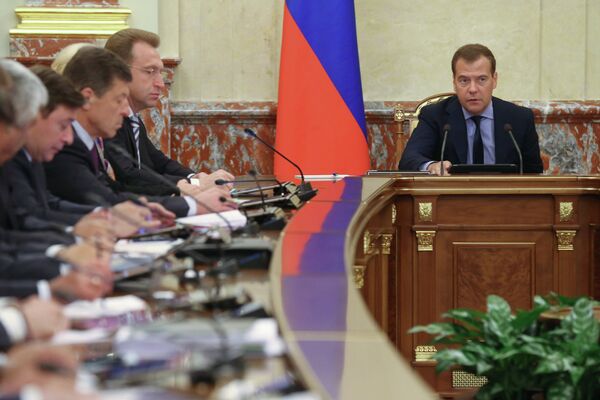MOSCOW, July 25 (RIA Novosti) – Competition in the Russian economy is still weak, which is hindering the development of small and medium-sized businesses in the country, Prime Minister Dmitry Medvedev said Thursday.
“Our anti-monopoly legislation is quite strict, while competition is still weak,” Medvedev told a government meeting.
The prime minister said problems remain on raw material markets and in the sectors of natural monopolies and state procurement. “Administrative and financial obstacles remain, access to transport infrastructure is limited, and licensing procedures are still costly and time-consuming, although we have taken steps,” Medvedev said.
These restrictions have an adverse effect on small and medium-sized businesses, he added.
First Deputy Prime Minister Igor Shuvalov said progress in developing competition in Russia was hindered by the passivity of Russian ministries.
Shuvalov said he had held meetings devoted to existing roadmaps for the development of competition, and that “no serious constant measures are being taken by the ministries to impact on competition.”
The deputy prime minister said the ministries were overburdened with work, especially during the process of drawing up a new budget. “But I would not [in the ministries’ place] report any improvement in the implementation of competition roadmaps,” he said.
Meanwhile, Deputy Prime Minister Arkady Dvorkovich said the problem of developing competition in Russia was largely explained by the absence of understanding between ministries and the Federal Anti-Monopoly Service (FAS), which takes decisions in this sphere on its own.
“In some areas, the FAS has the power to take decisions without even consulting any ministries. Assessments of the regulatory impact of the anti-monopoly service’s decisions are not conducted, and this sometimes has grave consequences,” Dvorkovich said, suggesting the government should limit the competition watchdog’s independence in regulatory action.




